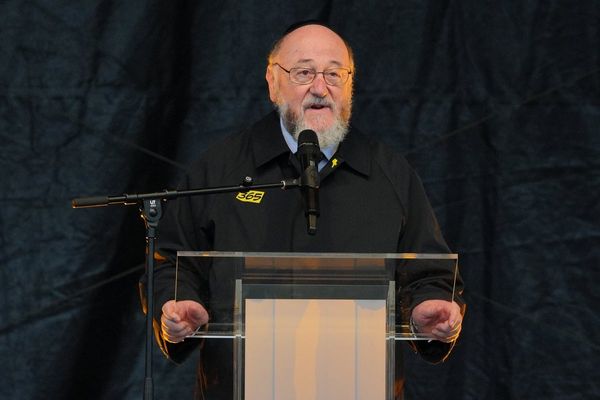
Successive governments have failed serving personnel and their families and Australia's veteran suicide rate is a national tragedy, the Veterans' Affairs Minister Matt Keogh has told parliament and apologised on behalf of the government.
The suicide rate for veterans is significantly higher than across the general Australian population, Matt Keogh said in the government's response to the interim report from the veterans suicide royal commission.
He described the loss of more serving and former serving personnel to suicide over the last 20 years than through operations over the same period in Afghanistan and Iraq as devastating.
"It is clear the things are not right. On behalf of the Australian government, I say sorry," he said.
Successive governments oversaw policies, processes and cultures at the Defence and Veterans Affairs' departments that were "counterproductive", causing distress to the veterans and defence communities.
"It is a great tragedy that successive Australian governments, have failed those who have served our nation," he said.
"Governments have also failed the families of those people, families who have carried a heavy burden of their own through the pain and suffering they have experienced."
The government would act now on its commitments made at the last election to unclog the staffing issues at the Veterans' Affairs department, Mr Keogh said.
"After years of reports, too many deaths, too many lives changed for the worse and endless discussion, it's time to get on with it."
The government will act on all but two of 13 interim recommendations, including reforming compensation legislation and eliminating the claims backlog at the Veterans' Affairs department by the end of next year.
The compensation system was so complicated that it was a factor in veteran suicide rates, Mr Keogh said.
However, the government will not act on two recommendations related to ensuring the inquiry can hear all evidence, stymied by parliamentary privilege and public interest immunity laws.
The royal commission had access to alternative approaches, the minister said.
Veterans advocate Julie-Ann Finney said those who served were still being silenced by those laws.
"This is a once in a lifetime investigation and the investigation needs to be complete," she said.
Personal stories, including in private sessions, were critical to shaping the thinking and recommendations of inquiry, says Jasmine Stanton, the director of Australia's Defence and Veterans Legal Service. The service, established by Legal Aid in all states and territories, is offering free legal support for current and former military personnel to participate in the inquiry.
"Personal submissions to the Royal Commission are generating real change at national level - but more people must be empowered to tell their story," Ms Stanton said.
Barnaby Joyce, the opposition's veterans' affairs spokesman, said the higher veteran suicide rates than the rate for current serving members showed "something was terribly wrong."
Veterans needed to transition to civilian life through time in a reserve unit when discharging from the Defence Force to ensure access to support, Mr Joyce told parliament.
"The reserve unit should be where people can [get] access to [support] ... and they're kitted out so they look like an authentic reserve unit."
Mr Keogh and Defence Minister Richard Marles urged anyone with insights to come forward and give evidence to the royal commission publicly or in private sessions, while submissions are open until October 13, 2023.
-
Support is available for those who may be distressed. Phone Lifeline 13 11 14; Mensline 1300 789 978; Kids Helpline 1800 551 800; beyondblue 1300 224 636; 1800-RESPECT 1800 737 732.
We've made it a whole lot easier for you to have your say. Our new comment platform requires only one log-in to access articles and to join the discussion on The Canberra Times website. Find out how to register so you can enjoy civil, friendly and engaging discussions. See our moderation policy here.







